Many thanks to Innovate UK for inviting us to present a keynote at their recent Digital Business Meetup: AI for Services Seminar.
A full recording of the event is available here.

Etic Lab is a research and design consultancy operating at the forefront of the digital technologies that are transforming our culture, our politics and our daily lives. We work alongside partners from business, academia and civil society to conduct research, build applications and execute projects which use radical new ideas to create meaningful results. For us, it’s not enough just to have an original thought – we try to use what we know to alter our given reality, and ultimately it is this sense of expanded possibility which we hope to share with our clients and collaborators.
Thank you for your time this morning, we would like to share with you the journey we were able to take with the support of Innovate UK on the Next Generation Services Challenge, particularly the growth this support enabled during the Covid-19 Pandemic.
So – Where were we pre -pandemic?

In Autumn 2018, Etic announced Routes to Justice – a feasibility study designed to evaluate the potential of digital technologies to enhance access to justice in the UK legal system.
This project was a part of the next generation service challenge which in turn is part of the Industrial strategy challenge fund and delivered jointly by Innovate UK and the Economic and Social Research Council on behalf of UKRI.

The project featured collaboration with various partners from the UK access to justice sector, with major partners LawWorks, RCJ Advice, Support Through Court and the Litigants in Person Network.
The project was set apart from others in this space, which have tended to focus either on dictating guidelines for digital innovation to be followed by individual service providers, or developing digital apps dedicated to serving a specific, narrowly-defined function.
This kind of work is of course extremely valuable, but it also faces certain fundamental limitations. There is a recurrent pattern within the sector of digital initiatives failing to scale beyond their pilot stage – a phenomenon that we’ve identified as “pilotitis” – because they are unable to attract enough funding and/or participants. We believe that this isn’t a judgement on the quality of the projects themselves, but a reflection of deep systemic factors within the sector which have produced an extremely difficult climate for digital innovation.
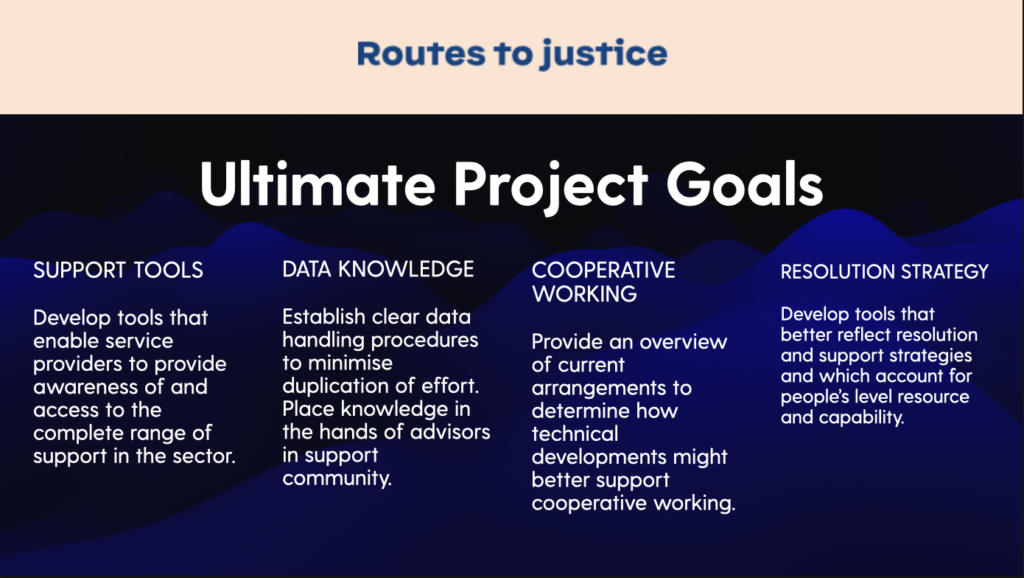
The first step for R2J, was to attempt to understand the access to justice sector as a system. Who are the various bodies which make up the sector, and what are their defining characteristics? What kinds of relationships exist between them? Can we trace the flows of information, decision-making and capital that make the system tick? To answer these questions, we engaged in a comprehensive program of research, comprising a detailed literature review, fieldwork and interviews with key organisations throughout the sector, and the use of innovative digital mapping tools. Using the data we gathered, we built a working model of the sector that we could use to assess which technological interventions will have the most impact, and where they would need to be implemented for optimal effect.
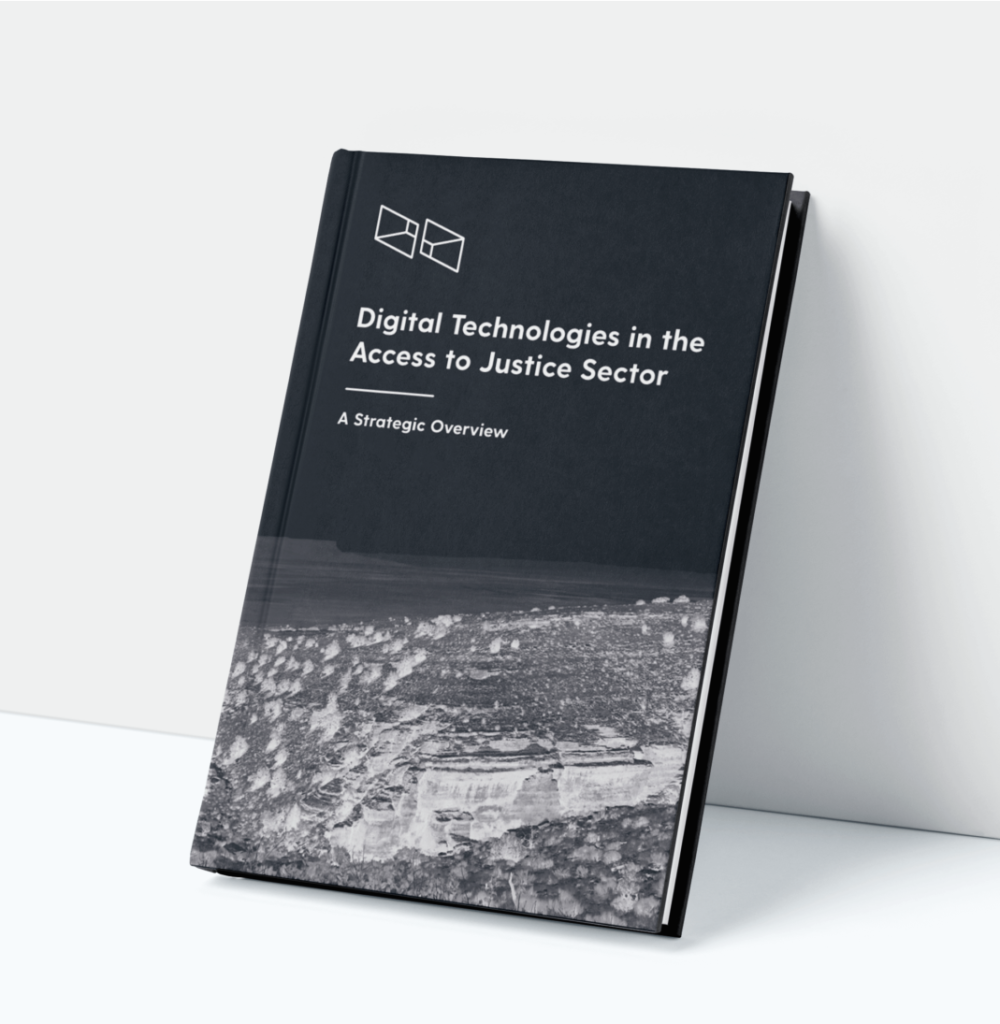
On 4th May 2020, Etic Lab published its report evaluating the capacity of digital technologies to support access to justice in the UK, including a systemic review of the A2J sector and five recommendations for candidate technological interventions which would afford systemic change.
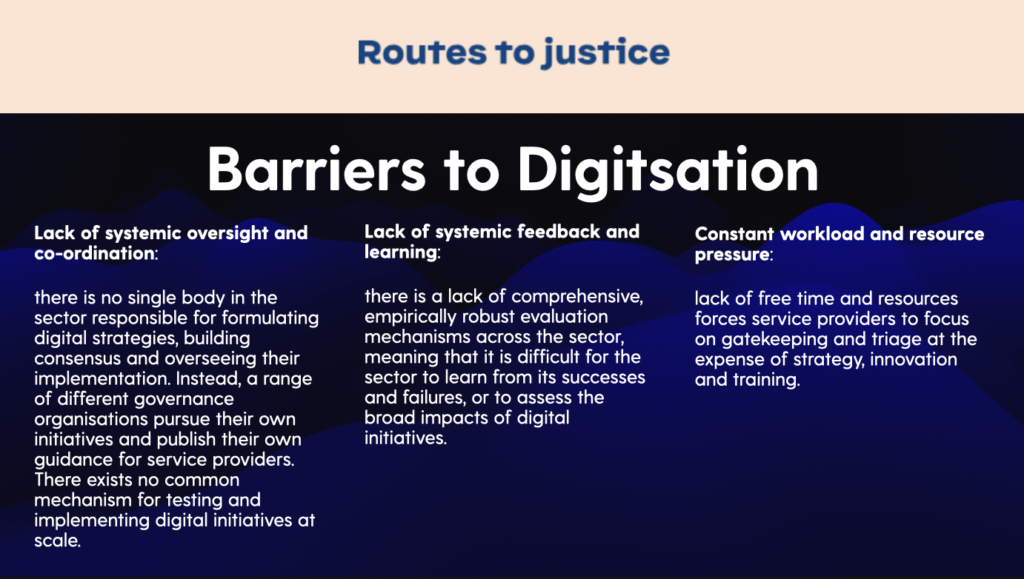
Our main conclusion was quite simple: the success of any digital initiative will depend upon the ability of the bodies which make up the access to justice sector to organise around a set of common goals and shared practices.
What tech interventions have the potential for systemic impact?
- the development of a common sector-wide Client management software (CRM) system
- The development of a bespoke telecommunications suite for the se actor, including videoconferencing, secure document transfer and searchable service directory
- The use of mathematical modelling of the sector to track trends, make predictions and develop strategies for resource management, service provision and digital implementation.
- The creation of an intelligent service map, tracking the location and characteristics of bodies within the sector and the relationships between them over time, using Etic Lab’s unique set of digital mapping tools
- The implementation of federated learning a cutting edge technique which allows organisations to pool learning and derived from their proprietary data, without sharing the data itself, this avoiding breach of data protection regulations and mitigating privacy issues.

When the pandemic hit, along with the rest of the world, we were at a critical point – We had two candidate technologies that we believe will have a systemic impact in the sector being spun out into independent business’.
These were Kuva and Network Praxis
And they took very different paths…

Firstly, I would like to introduce Kuva.
A comprehensive remote working solution for professionals that doesn’t collect, store or monetise information.
Kuva addresses the need for a simple, safe and transparent online workplace platform.
Our features are different by design – they need to offer the privacy and security that allows users to work openly while acting responsibly. We focus on the needs of confidential workflows, whether delivering sensitive commercial, therapeutical or advisory services.
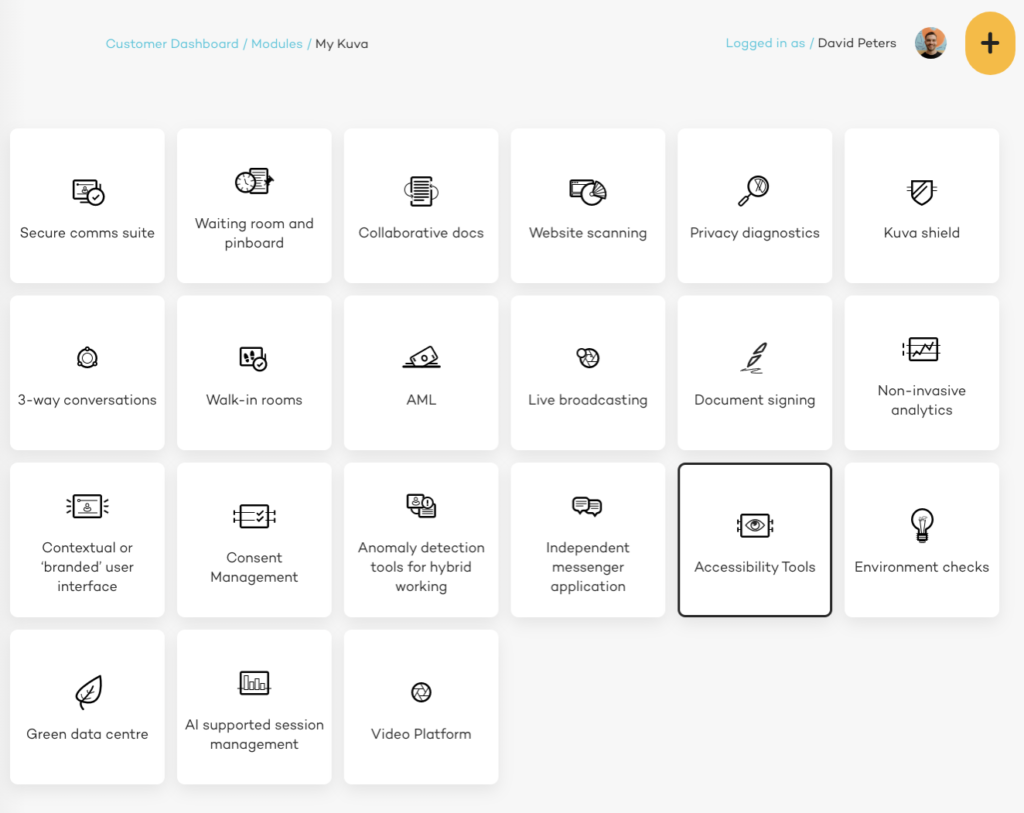
Take a look at the Kuva dashboard – you can see the range of elements available to users. Let’s focus in on a couple:
- the comms suite we’ve just briefly seen on video
- The waiting room – a fantastic space for users to decorate with any relevant information for clients and also collect relevant client data and feedback.
- Branded interface – users don’t need to know they are ‘kuvaing’
- Anti money laundering facilities – this was developed alongside galleries and art dealers
But how were we able to innovate this and other industry specific features?
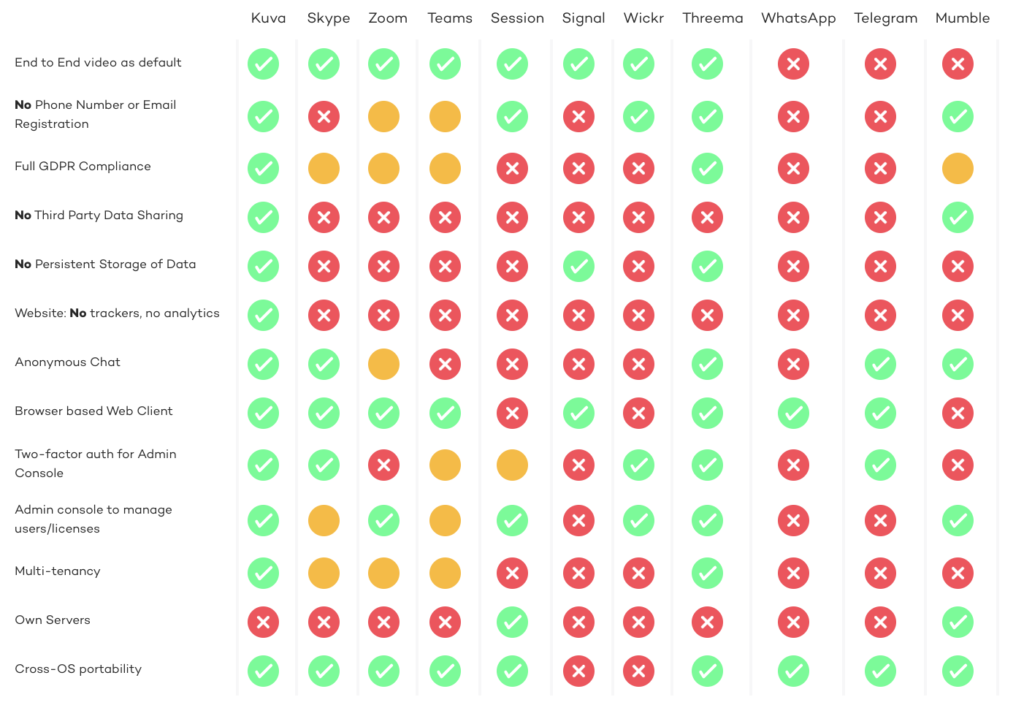
Well, most importantly, UK Innovate funding enabled us to embed ourselves into markets we had no previous experience of. Therapy and Advice sectors and also embed ourselves into the creative industries sector. Thanks go innovate UK we were able to fully understand the sector we were working for.
We were able to fully realise the pressures placed upon professionals to uphold the pre pandemic in person privacy standards, online.
The requirement for us to educate the advice sector in the risks of using proprietary platforms was great
Unfortunately, perhaps due to other pressures of the pandemic, we found deaf ears from the public bodies and membership organisations governing digital strategies in the advice and therapy sectors, despite the overwhelming evidence of the dangerous use of proprietary platforms.

We continued to build awareness and met with awards such as CreaTech ones to Watch 2021 a Welsh Start Up Award and were named a TechNation rising Star.
However, this laissez-faire attitude followed us into our funding ventures.
As a female founder, I was invited by ****** to attend ‘Female Founder office hours’ with the statement
‘****** ‘recognises that female founders could benefit from an increased amount of funding advice and support. This can help drive the level of funding female founders obtain. That’s why we are offering our services to specifically help female founders looking to raise funds.
It is incredibly dissappointing to share with you that not one of the male VCs that were nominated to review Kuva ever attended a meeting. Disheartening doesn’t cover how it felt.
BUT WHERE ARE WE NOW?
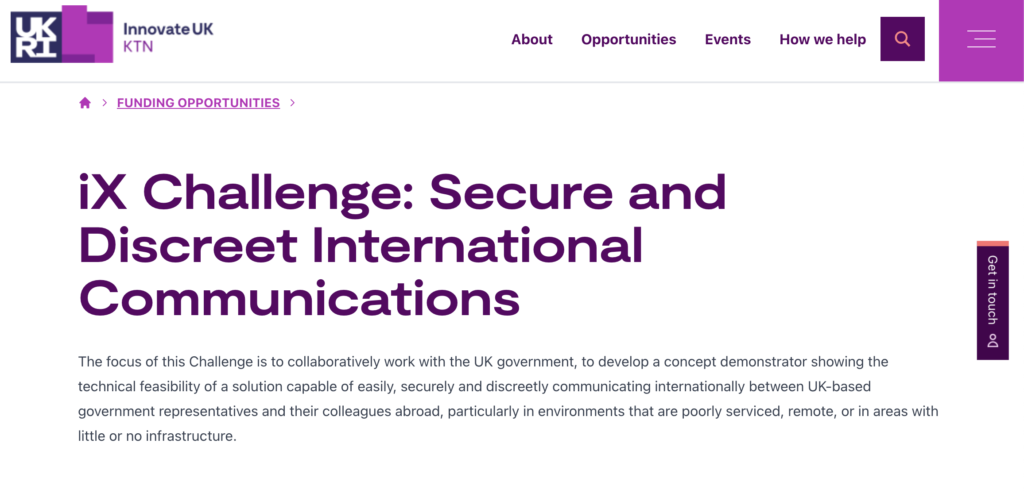
KTN are actively recruiting in order to provide a Kuva style service
You can see the media catching up and the panic begin:

Kuva requires further Resources.
Kuva requires people and money in order to fully realise the potential required by those who access advice online, and to push commercial sales into new sectors. We have Bold future visions for the arts, therapeutic and legal markets and our experience of embedding ourselves here has better equipped us for this future.

If that feels like a lot already – let’s move on to the our other spin out!
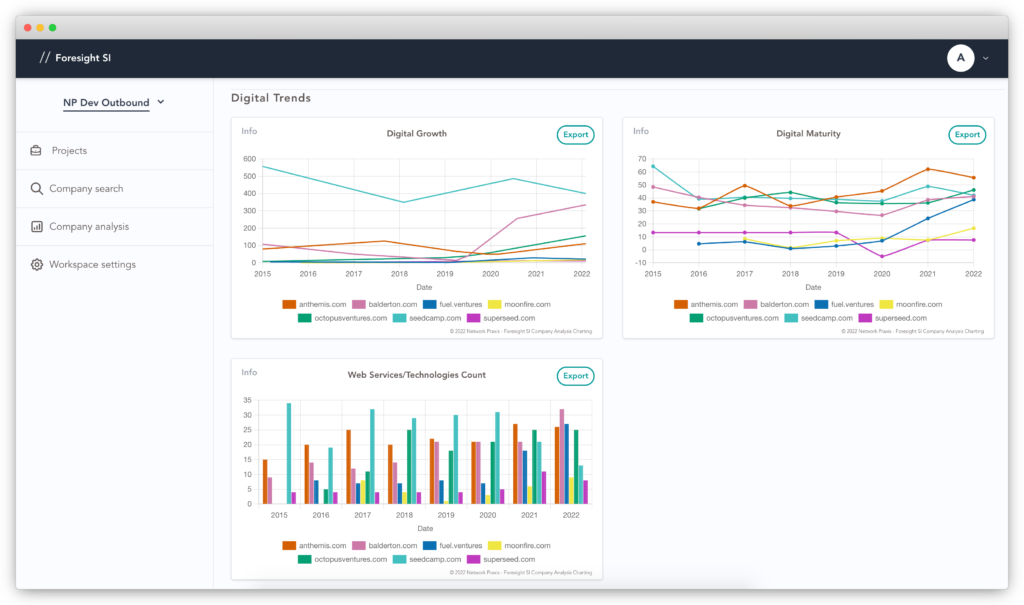
Because the justice sector is notoriously bad at curating data about its activities – we needed to find an original way to unobtrusively measure behaviour of legal sector actors. NP was our project to design technologies capable of doing that and we’re now able to do so, with a minimal requirement that an organisation has a digital presence.
We deliver digital tools and strategic services to help our clients understand the twenty-first century economy. Perhaps due to our previous experience of early stage start up product development flow, it is wonderful to share that Network Praxis is now self supporting.
Foresight SI is a Network Praxis product. A platform that creates new knowledge
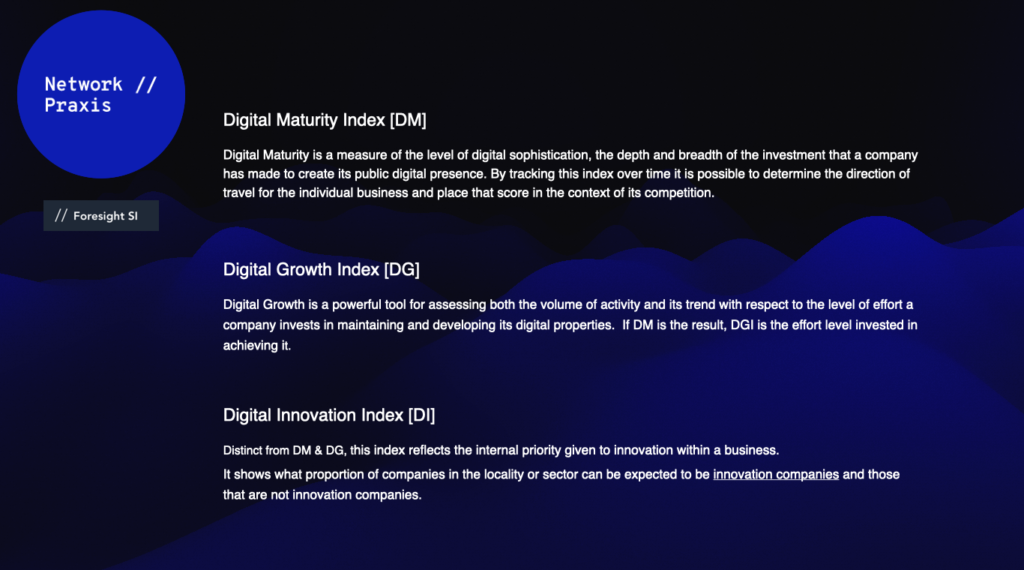
In the UK, 85% of companies with 10+ employees operate a website. Network Praxis has developed and refined 3 new metrics designed to measure, understand and predict the behaviour if these SMEs
- the level of digital maturity of a company’s digital footprint
- The volume of investment in that footprint (digital growth )
- measure its innovation
Our tools are a world first, they offer the opportunity to measure the extent and quality of a business’s digital presence, to put a figure on how good it is and, better still, allow you to make comparisons with the competition…
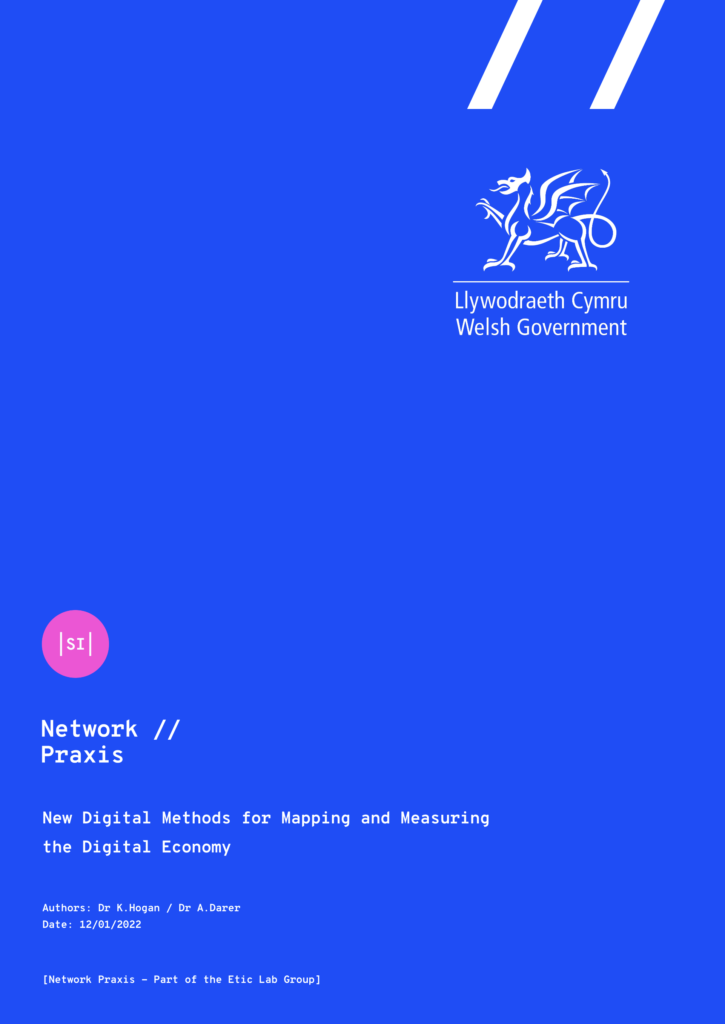
We were commissioned to complete a report for the Welsh Government using these proprietary metrics – and would like to share a few examples of them in use:

Here we are looking and digital maturity and innovation across Wales. We use these metrics of ways to monitor economic activities.

Digital Growth – change scores for uk and Wales 2010-2021
- Brexit ( and elections) uncertainty
- Impact of covid-19
- Different schedule lockdowns
- Bounce back spikes
- Covid-19 and Brexit impacts intertwine
We have been able to make proxy measures for organisational certainty. We can see shocks on the economy – we can see anticipation and action made by organisations.
We’ve been hired by clients to do the following:
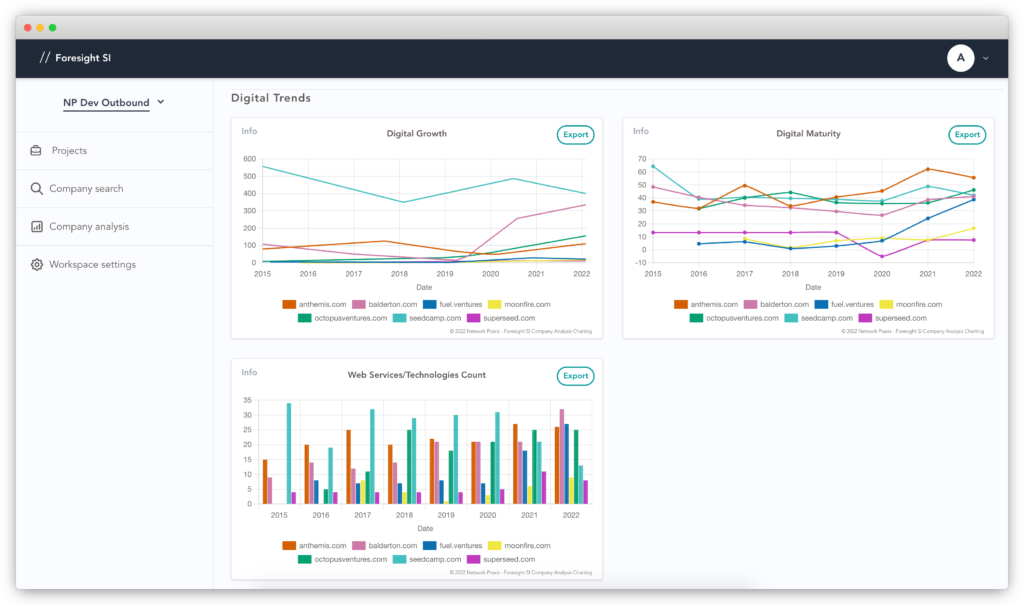


R&D funding enabled us to turn our experience of the pandemic into one of opportunity. We were able to keep moving forwards when it seemed the world was frozen.
We now find ourselves prepared, better equipped (however under resourced) and working hand in hand with ambitious clients making changes to create value in the face of an uncertain future.
